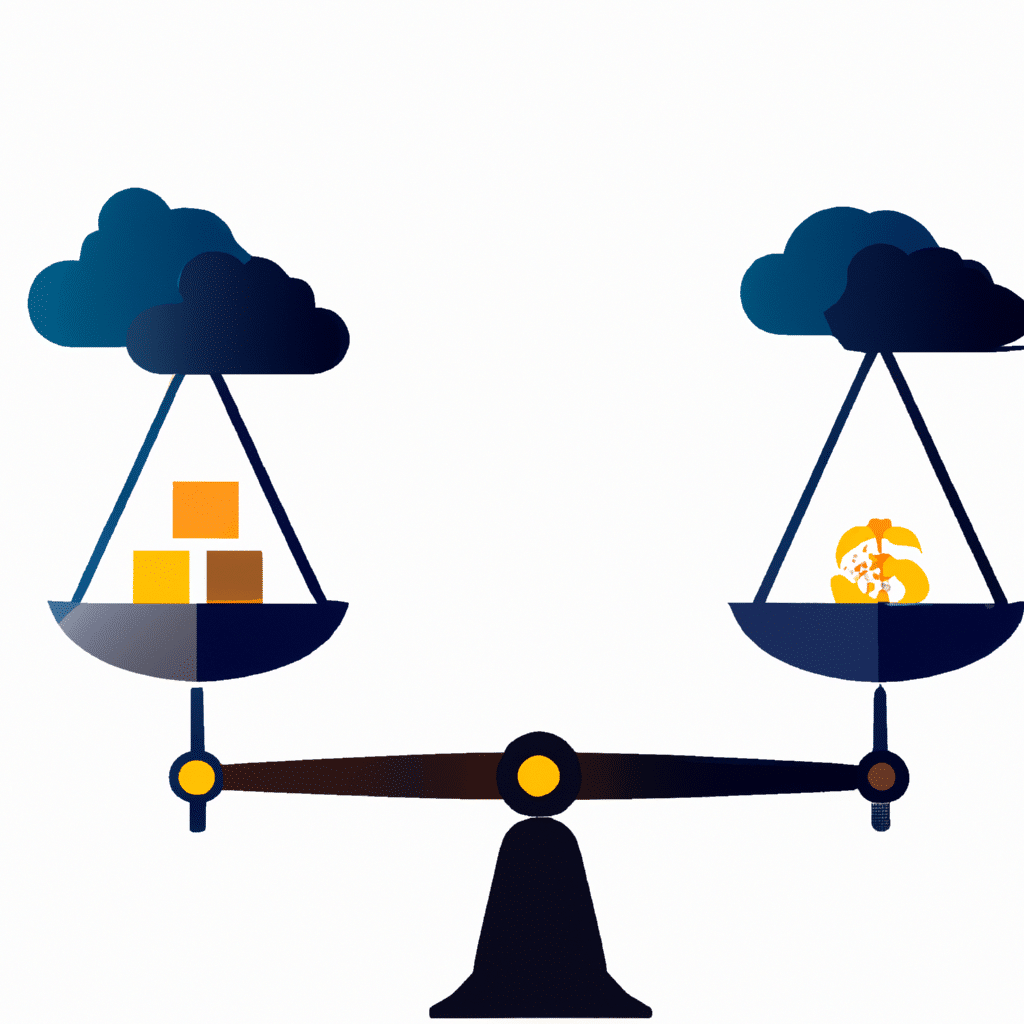Cloud-based accounting software has become increasingly popular among small businesses in recent years. It offers many benefits, such as accessibility, flexibility, and cost-effectiveness. However, like any other technology, it also has its drawbacks. In this article, we will explore the pros and cons of cloud-based accounting software for small businesses.

What is Cloud-Based Accounting Software?
Cloud-based accounting software is an online tool that allows businesses to manage their financial information through the internet. It is a type of software as a service (SaaS) that offers a variety of features, such as invoicing, bookkeeping, payroll, and financial reporting. Users can access their financial data anytime and anywhere, as long as they have an internet connection.
The Pros of Cloud-Based Accounting Software
Accessibility
One of the main advantages of cloud-based accounting software is its accessibility. Users can access their financial data from any device with an internet connection, such as a laptop, tablet, or smartphone. This makes it easier for businesses to manage their finances on the go, without being tied to a physical location or a specific device.
Flexibility
Cloud-based accounting software offers a high degree of flexibility. Users can choose from a variety of plans and pricing options, depending on their needs and budget. They can also easily upgrade or downgrade their plans as their business grows or changes. Additionally, cloud-based software is easy to customize, allowing businesses to tailor it to their specific needs.
Cost-Effectiveness
Cloud-based accounting software is generally more cost-effective than traditional accounting software. Businesses can avoid the upfront costs of purchasing and installing software on their own servers, as well as the ongoing maintenance costs. Additionally, cloud-based software often includes automatic updates and upgrades, which eliminates the need for manual updates and ensures that businesses always have access to the latest features and security patches.
Automatic Backups and Data Security
Cloud-based accounting software offers automatic backups and data security features, which protect businesses from data loss and unauthorized access. Users don’t need to worry about manually backing up their data or securing their servers, as these tasks are handled by the software provider. This can save businesses a lot of time, money, and stress.
Integration with Other Business Tools
Cloud-based accounting software can integrate with other business tools, such as customer relationship management (CRM) software, payment gateways, and e-commerce platforms. This can help businesses streamline their workflow, reduce manual data entry, and improve their overall efficiency.
The Cons of Cloud-Based Accounting Software
Internet Dependency
One of the main drawbacks of cloud-based accounting software is its dependency on the internet. If a user doesn’t have a stable internet connection, they may experience slow performance, lag, or even loss of data. This can be especially problematic for businesses that require real-time data or rely heavily on cloud-based software.
Security Concerns
While cloud-based accounting software offers data security features, some businesses may still have concerns about the safety of their financial data. There is always a risk of data breaches, hacking, or other types of cybercrime. Businesses should carefully research their software provider’s security protocols and take steps to protect their own data, such as using strong passwords and two-factor authentication.
Limited Customization
While cloud-based accounting software is easy to customize, it may have some limitations. Some businesses may require more advanced features or integrations that are not available in their chosen software. Additionally, some software providers may not allow users to access their own data or customize it in certain ways.
Subscription Fees
Cloud-based accounting software is generally more cost-effective than traditional software, but it still requires a subscription fee. Businesses must pay for their chosen plan on a monthly or annual basis, which can add up over time. Additionally, some software providers may require users to pay for additional features or services.
Learning Curve
Switching to cloud-based accounting software may require a learning curve for some users. They may need to learn new features, navigation, and terminology. This can take some time and may require additional training or support.
Conclusion
In conclusion, cloud-based accounting software offers many benefits, such as accessibility, flexibility, cost-effectiveness, and data security. However, it also has its drawbacks, such as internet dependency, security concerns, limited customization, subscription fees, and a learning curve. Small businesses should carefully consider their needs and budget before choosing a cloud-based accounting software provider. They should also research their options and read reviews from other users to ensure that they are making an informed decision.












